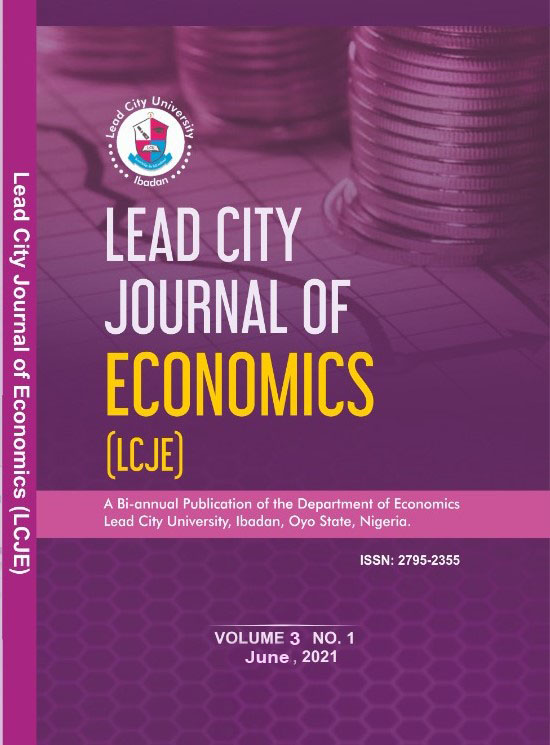Investigating the Threshold of Financial Development that stimulates Inclusive Growth in Nigeria
.
Keywords:
Domestic bank credit, money supply, lending rate, financial development index, inclusive growth, threshold effectsAbstract
There is hardly a simple linear link between financial development and inclusive growth. The expansion of financial markets might not always guarantee more people will benefit from economic growth. This study uses the principal component analysis to create a comprehensive index of financial development and inclusive growth and also establishes the non-linear relationship them using the VECM and ARDL estimators. Thus, this study uses empirical samples derived from Nigerian national statistics collected between 1985 and 2020 to determine the threshold of financial development (proxied by domestic bank credit, broad money, lending-deposit spread and financial development index) that stimulates inclusive growth. The findings show that there is an optimal interval because the link between financial development index and inclusive growth has an inverted U shape, but the components of financial development have U shapes. The result showed that the minimum domestic bank credit to private sector to GDP that stimulate inclusive growth is at 18.22% and 13.49% in the short-run and long run respectively. Concerning money supply to GDP, it would stimulate inclusive growth at 17.84% in the long run. As to financial development index, it exhibits a maximum threshold of 0.697 to maintain inclusive growth in the long run. On the basis of the findings of the research study, specific recommendations for policy are provided.

